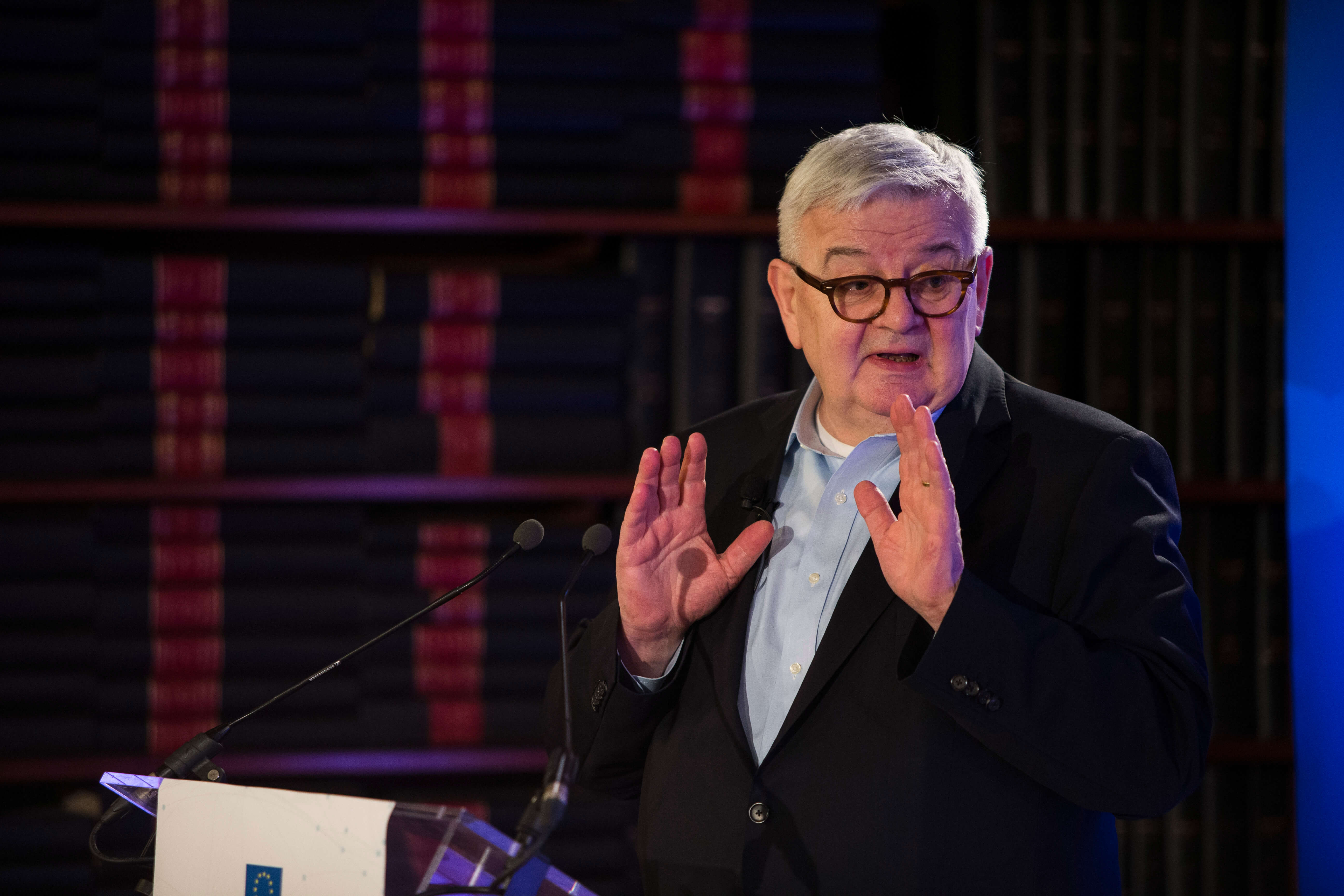As World War II raged in Europe in the early 1940s, Stefan Zweig’s memoir Die Welt von Gestern: Erinnerungen eines Europäers (The World of Yesterday: Memoirs of a European) was published by a German exile publisher in Stockholm.
Zweig, full of sorrow, describes the “rupture of time” that brought the old Europe to an end in the fury of two terrible world wars.
Are Europeans today undergoing another such rupture? Are we once again witnessing the disappearance of the old order – the only one that most of us have ever known? If so, it is an unspeakable loss.
The old order guaranteed peace, security, and prosperity – only to Western Europe, initially, but then to the rest of the European continent (with the exception of the former Yugoslavia) after 1989. That happy time now increasingly looks like The World of Yesterday 2.0.
It is worth recalling that America’s previous withdrawal from the continent created a fatal opening for radical ideologies and hateful propaganda.
Under Hitler and the Nazis, extreme nationalists, glorifiers of violence and racism, enemies of democracy, and ardent supporters of dictatorship decided that their moment had come.
The Nazis seized power and deliberately brought on WWII, plunging Europe into the abyss.
Where do we stand today?
Where do we stand today? Russia has not only launched a war of conquest and annihilation against Ukraine but also begun to test NATO’s willingness to defend its airspace with drone intrusions into Poland and Romania, and fighter planes flying over Estonia.
Still, while US statements of solidarity have often sounded rather weak since Donald Trump’s return to the White House, it would be a mistake to say that the situation is comparable to a world war.
Rather, Russian President Vladimir Putin sees an opportunity to reshape – with Trump’s (voluntary or involuntary) help – the world order in his favor.
Europe is the first port of call for his revisionist strategy, because it is militarily weak and indecisive, and it can no longer count fully on America.
Here in Europe, many are asking themselves what purpose Trump’s policies are supposed to serve
Here in Europe, many are asking themselves what purpose Trump’s policies are supposed to serve. Why is he going out of his way to weaken the United States and the broader West? Why is he so soft on Putin?
Trump may well fear an escalation of the Ukraine war into a major conflagration, but his approach is raising the odds of precisely that outcome.
His administration’s policy of appeasement toward the Kremlin and aggression toward European allies has obviously encouraged Putin to push even harder.
Success of the transatlantic world
The world-historic success of the transatlantic world rested on the military protection that America provided.
But owing to the support from strong alliances (NATO for security, the European Union for the economy, democracy, and law), Western Europe, during the four decades of the Cold War, became a kind of protectorate. In the process, it lost – or perhaps forgot – its sovereignty.
Europeans lived well and safely in the world of yesterday, but we neglected the duties that arose with our growing prosperity.
Everything changed when Trump arrived, declaring, in effect, “That’s it; no more.”
Everything changed when Trump arrived, declaring, in effect, “That’s it; no more.”
The subsequent plunge from a state of cozy comfort into the icy reality of power politics happened so fast that we could not adapt.
It all came as quite a shock, made even worse by the equally sudden return of war to the continent.
World without a powerful, democratic America
But another question has come into sharper focus under Trump’s second presidency: What will become of America?
Though it remains the preeminent global power, this proud, old democracy is clearly in danger.
 A world without a powerful, democratic America would be fundamentally different, and unquestionably worse - Joschka Fischer
A world without a powerful, democratic America would be fundamentally different, and unquestionably worse - Joschka Fischer
Not a day goes by without news of some further loss of rights, disregard for procedures, or violation of norms. The entire federal government has become an instrument for satisfying Trump’s personal whims.
“The land of the free” is transforming into an oligarchic autocracy before our eyes.
The endless flow of decrees from the White House has fundamentally changed America’s place in the world.
The country used to represent the promise of freedom; now, it is the latest and most high-profile case of democratic erosion and rising authoritarianism.
Freedom of expression – once the sacred cow of American democracy – is being discarded, replaced by a regime of lèse-majesté (the criminalization of speech against a monarch).
There are even serious debates about whether the US – the birthplace of modern democracy – will have free and fair elections in the future.
Let us not forget, whatever happens in the US will always affect us all. A world without a powerful, democratic America would be fundamentally different, and unquestionably worse.
Like Zweig, I cannot shake off the impression that the sun is setting on us. Something is definitely coming to an end.
My attachment to the idea of the transatlantic West, and to an image of America as a bastion of freedom, democracy, and security, has been deep and lifelong. But that was the world of yesterday.
Joschka Fischer, Germany’s foreign minister and vice chancellor from 1998 to 2005, was a leader of the German Green Party for almost 20 years.